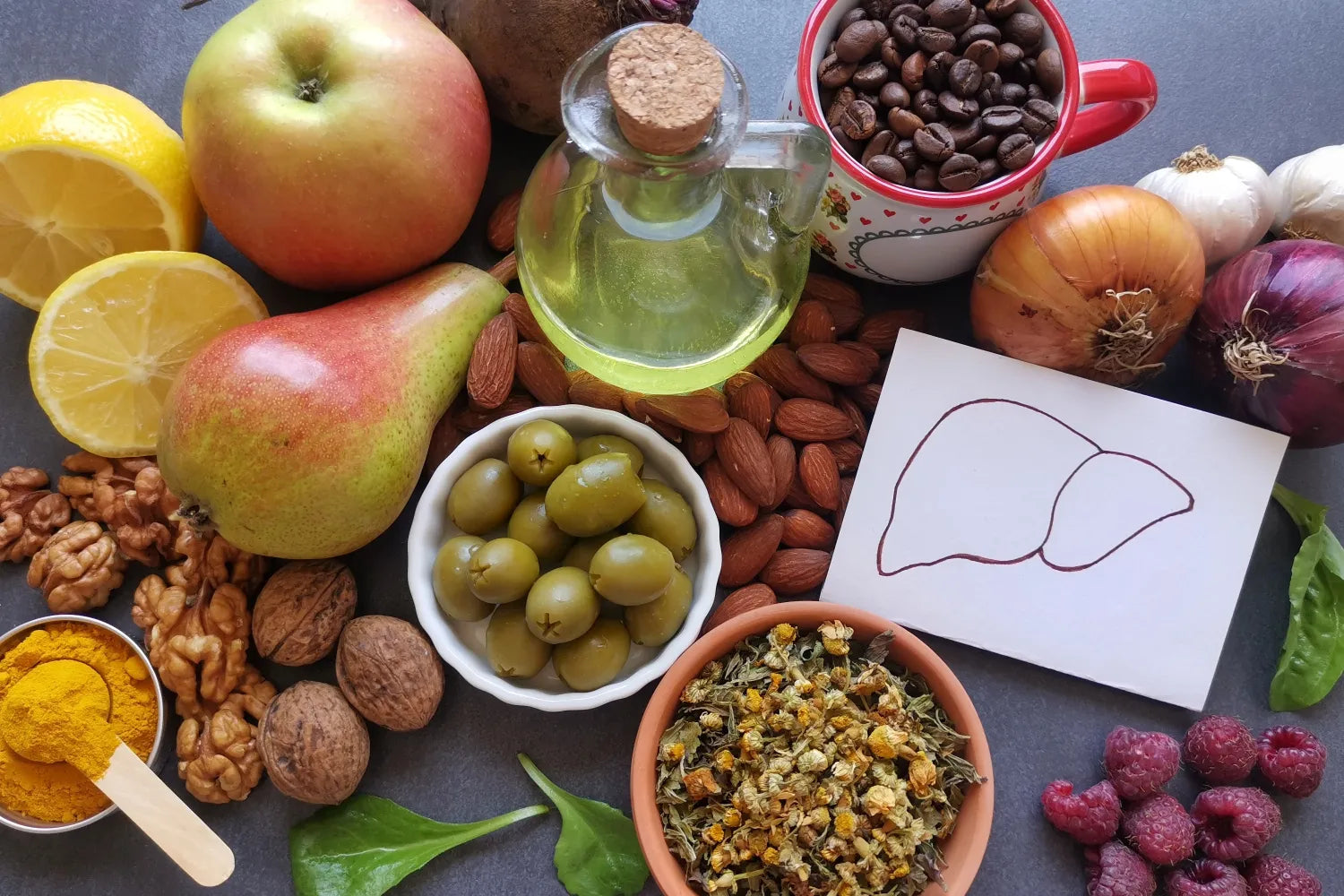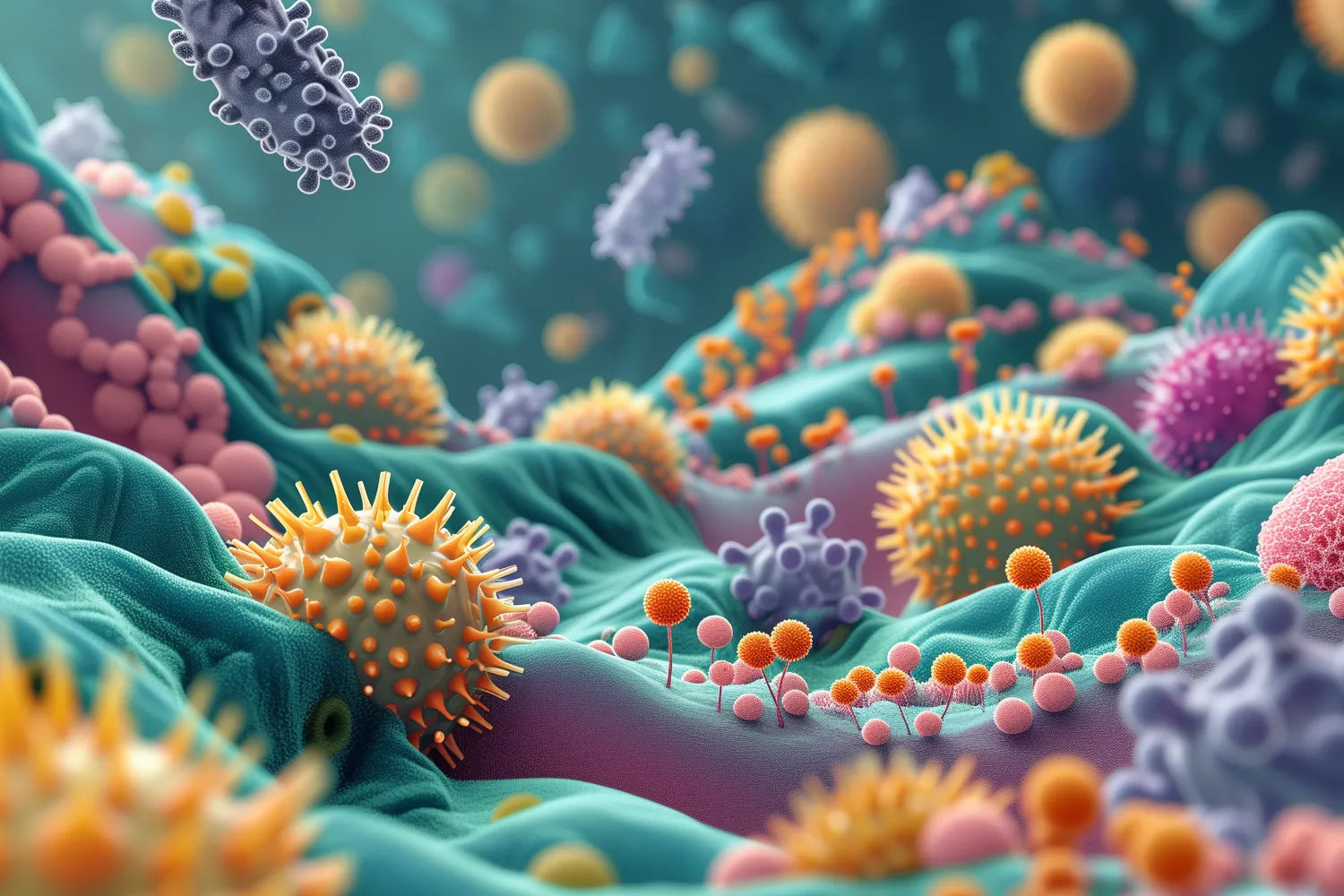
Dr. Eric Venn-Watson’s Highlights
HIGHLIGHTS
High cholesterol can place you at a higher risk of developing heart disease.
Eating a heart-healthy diet means increasing your intake of high-fiber vegetables, lean proteins, and healthy fats.
Switching your omega-3 supplement to a more effective fatty acid, like fatty15, maycan help support cholesterol homeostasis and help you reach your goals.*
If you suffer from high cholesterol, your doctor has probably told you that diet has a lot to do with helping maintain healthy cholesterol levels. The problem is that it can be hard to figure out what to eat and what to avoid.
Because heart disease is the leading cause of death among Americans, anything that places us at a higher risk of developing it needs our attention. Unhealthy cholesterol levels can increase your risk of heart disease, and fixing the problem may be as simple as making some lifestyle changes and dietary adjustments.
If you’re feeling lost, we’ve got a seven-day meal plan to help you kickstart your diet with foods to help lower cholesterol and decrease your risk of heart disease.
What Is Cholesterol?
First, let’s talk a little more about cholesterol.
Cholesterol is vital to your body. Your body needs it for cellular support and for creating hormones. Your liver makes all the cholesterol your body needs, but our food (mostly animal products and byproducts) also contains cholesterol. There are two different types of cholesterol:
-
LDL cholesterol. Low-density lipoprotein cholesterol, also known as “bad cholesterol,” collects in your blood vessels and increases your risk of heart attack and stroke.
-
HDL cholesterol. High-density lipoprotein cholesterol, also known as “good cholesterol,” helps remove some of the low-density lipoprotein cholesterol from your bloodstream.
Your doctor may also talk to you about your triglyceride levels if you have high cholesterol. Triglycerides are a type of lipid that store extra calories you consume and don’t use immediately for energy.
Having high triglycerides levels often goes hand in hand with high cholesterol levels. They can also be a sign of other health conditions like:
- Metabolic syndrome
- Type 2 diabetes
- High blood pressure
A low-cholesterol diet can help lower your bad cholesterol and triglyceride. Here’s a quick reference guide for avoiding dietary cholesterol and increasing heart health.
Seven-Day Healthy Eating Plan To Lower Cholesterol Levels
Before you begin, make a grocery list. One of the easiest ways to avoid foods high in cholesterol is to shop within the perimeter of the grocery store. You’ll avoid sugar-laden cereals, hydrogenated trans fats, and empty carbs.
Instead, you’ll be shopping for nutrient-dense produce, lean meats, and some dairy. Below is a seven-day heart-healthy diet plan that includes copious amounts of vegetables, whole grains, and lean protein to keep your appetite satisfied and your cholesterol numbers low. Many of the included recipes make enough servings to last the next day.
Day One
Breakfast: Whole grain oats (preferably steel-cut), topped with raspberries, blueberries, or strawberries
Lunch: Stuffed sweet potato with black beans and avocado
Dinner: Mediterranean lemon-pepper salmon made with olive oil rather than canola or vegetable oil to support a healthy fat intake
Day Two
Breakfast: Low-fat Greek yogurt topped with berries of your choice
Lunch: Vegetarian Southwest Quinoa Salad
Dinner: Warm Potato Salad with Smoked Mackerel
Day Three
Breakfast: Whole grain toast with peanut butter and apple slices
Lunch: Green salad topped with pre-cooked chicken or tofu, veggies, and dressed lightly with balsamic vinegar and olive oil.
Dinner: Sheet Pan Chickpeas and Vegetables
Day Four
Breakfast: Heart Healthy Breakfast Smoothie
Lunch: Healthier fast food. You can’t always pack your lunch, but you can still make a heart-healthy decision when you have to grab a fast-food lunch. To order fast food that won’t break your cholesterol bank:
- Stick with low-sodium food options (usually avoiding anything deep fried)
- Avoid red meat
- Limit heavy salad dressings and empty carbohydrates (like buns and rolls)
- Choose restaurants that allow you to “build your own” bowl or sandwich.
Dinner: Chicken Tortilla Soup
Day Five
Breakfast: Cinnamon Roll Overnight Oats
Lunch: Heart Healthy Mixed Bean Salad. Legumes in this recipe contain high levels of soluble fiber, which helps keep you full and supports healthy total cholesterol levels.
Dinner: Chicken Tortilla Soup (leftovers)
Day Six
Breakfast: Cinnamon Roll Overnight Oats
Lunch: Heart Healthy Mixed Bean Salad
Dinner: Tandoori Chicken with Brown Rice
Day Seven
Breakfast: Chia and Berry Breakfast Pudding (this will make enough servings to fuel your mornings for the next two days, so you have a jump start on week two of your diet plan.)
Lunch: American Heart Association Edamame Salad
Dinner: Tandoori Chicken with Brown Rice
Snacks
In between meals, choose snacks that won’t cause your blood sugar levels to spike and then drop dramatically, leaving you tired and craving sweets. Hummus and carrots, a handful of almonds, and fruits with low-glycemic indexes are all excellent choices for supporting healthy cholesterol and helping keep you full.
How Can Exercise Help With Cholesterol?
Diet is important, but staying active helps support blood cholesterol levels and lowers your risk factors for developing heart disease. Exercise helps activate high-density lipoprotein and eliminate low-density lipoprotein from your blood.
Just 30 minutes of heart-pumping movement per day can support healthy cholesterol levels and help you achieve your weight loss goals.
Elevate your cells. Elevate your self.
Buy NowWhat Should I Know About Omega-3 Fatty Acids for Cholesterol?
You’ve probably heard that omega-3 fatty acids help support your heart health. But did you know that only one omega-3 fatty acid (ALA) is actually essential? EPA and DHA, two other omega-3 fatty acids, aren’t generally recognized as essential fatty acids.
In addition, only one omega-3, pure EPA, has been shown to protect heart health. The problem with most omega-3 fatty acids is that they don’t contain pure EPA and have some unfortunate side effects. Excessive consumption of omega-3 fatty acids could lead to:
- Low blood pressure
- Thinning of blood
- Excessive bleeding if an injury were to occur
- Increased risk of bruising
The dosing requirements are usually pretty high (between 2000-3000mg per day) and leave you with a fishy aftertaste that even “burpless” formulas can’t eliminate.
One way to help support healthy cholesterol without unwanted side effects?* Switch your daily fish oil pill for fatty15.
What Is Fatty15?
Fatty15 is a once-a-day supplement that can help you lead a healthier life, but in the beginning, the focus wasn’t on humans.*
Discovery of C15:0
While helping dolphins live healthier and longer lives, Dr. Stephanie Venn-Watson, a veterinary epidemiologist, discovered that some dolphins had fewer age-related illnesses than others.
Dr. Venn-Watson found that higher circulating levels of a particular fatty acid were responsible for many health benefits in the healthiest dolphins.
She went further, looking into the health benefits of this molecule in human populations, and three years later, she published her findings in Nature's Scientific Reports in 2020.
What fatty acid was responsible for the health benefits, you ask? C15:0, aka pentadecanoic acid. C15:0 is an odd-chain, essential, saturated fatty acid that can support your cellular health and your long-term health and wellness.
Wait, Aren’t Saturated Fats Bad for Us?
Although we have been told for decades that all saturated fats are bad for us, science now supports that some saturated fats are good and even essential for our health.
C15:0, an odd-chain saturated fatty acid has recently been identified as being essential — our bodies don't make it, and we have to get it through our diets.
Science supports that higher levels of odd-chain saturated fatty acids are associated with better heart health. There are now calls to action to update current dietary guidelines to differentiate between good and bad saturated fats.
Further, higher levels of C15:0 has been repeatedly associated with healthy cholesterol and triglyceride levels and improved heart health.*
How Does Fatty15 Work?
C15:0 (the only ingredient in fatty15) naturally binds to receptors found throughout our bodies, called PPARs (pronounced pee-pars), that help to regulate our metabolism, including our cholesterol and glucose homeostasis.* This helps to explain why daily fatty15 supplementation helped to promote healthy cholesterol and triglyceride homeostasis.*
But that’s not all it does. This sturdy fatty acid helps support your cells (aka the foundation of your health):*
- Stronger Cell Membranes. As we age, our cell membranes become weak, and fragile cell membranes can mean weaker cells that check out before they should. Fatty15 integrates into your cell membranes, fortifying them and keeping them strong so your cells are protected.
- Powerful Mitochondria. Your cells' mitochondria provide the energy they need to carry out cellular functions, but as we get older, our mitochondria become sluggish. Fatty15 increases mitochondria function by up to 45 percent, so your cells can keep working hard.
- Improved Cellular Signaling. By binding to receptors found throughout our body, called PPARs, fatty15 helps to regulate our metabolism, immunity, mood, appetite and sleep, with people who use fatty15 seeing improvements in these areas in as little as six weeks
- A Better Option Than Omega-3. Fatty15 is better, broader, and stronger than the highest grade of omega-3 fatty acid (EPA). It offers more benefits, supports more cell types, and is a safer option than omega-3.
In addition to a healthy diet, just one 100mg capsule daily can help you reach your goals, support your health, and feel better.*
Getting Started
Many of the age-related illnesses we experience, like high cholesterol, can be managed with diet and exercise. In addition, taking a supplement that supports your health, starting with your cellular health, can help you feel better and reach your health goals faster.
Fatty15 helps to reverse cellular aging, which helps you to age healthier*. Get started with fatty15 here.
Sources:
What is Cholesterol? | American Heart Association
Black Bean Stuffed Sweet Potatoes | Food with Feeling
Mediterranean Diet Lemon Pepper Salmon | Food Wine and Love
Vegetarian Southwest Quinoa Salad Recipe | Very Well Fit
Warm potato salad with smoked mackerel | Dinner Recipes | GoodTo
Sheet-Pan Balsamic-Parmesan Roasted Chickpeas & Vegetables Recipe | EatingWell
Chicken Tortilla Soup | Delicious Decisions
Heart Healthy Smoothie | Plant Based Cooking
Cinnamon-Roll Overnight Oats Recipe | EatingWell
Heart Healthy Mixed Bean Salad | Salads 4 Lunch
Tandoori Chicken with Brown Rice | American Heart Association Recipes
Edamame Salad with Orange-Balsamic Dressing | American Heart Association Recipes

Eric Venn-Watson M.D.
CEO, Co-Founder
Senior Scientist, Co-Founder
Eric is a physician, U.S. Navy veteran, and Co-founder and COO of Seraphina Therapeutics. Eric served over 25 years as a Navy and Marine Corps physician, working with the special forces community to improve their health and fitness. Seraphina Therapeutics is a health and wellness company dedicated to advancing global health through the discovery of essential fatty acids and micronutrient therapeutics.
You May Also Like...
10 Foods Good for Your Liver: The Ultimate Guide
Your liver does a lot for you. If it had a voice of its own, it might ask you to eat more veggies and cut back on your Old Fashioneds. Unfortunately, the liver doesn’t receive a lot of attention until...
How To Improve Your Gut Microbiome: 6 Tips
Interested in how to improve your gut microbiome? We’ve got six tips to help your gut thrive and improve your overall digestion.


